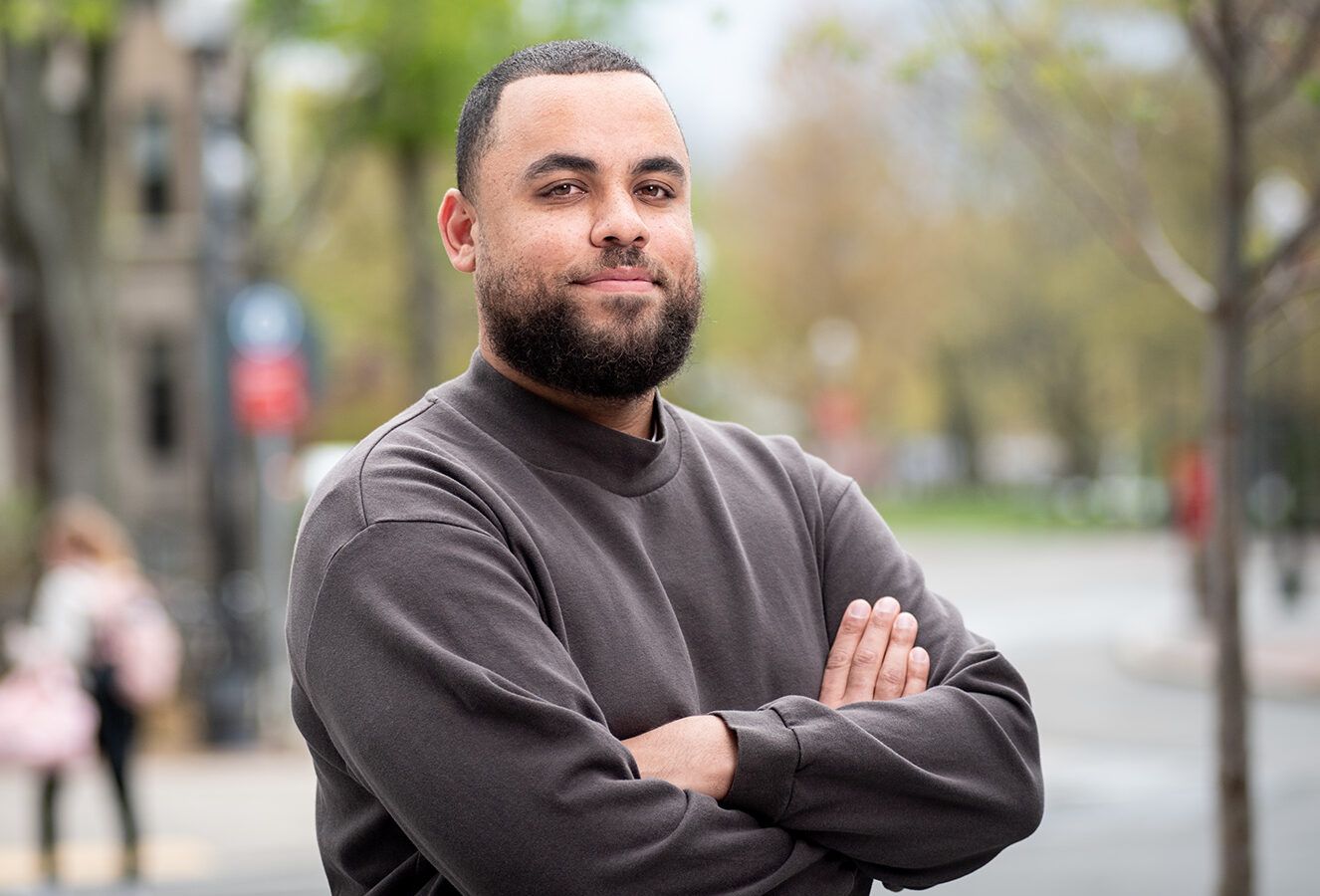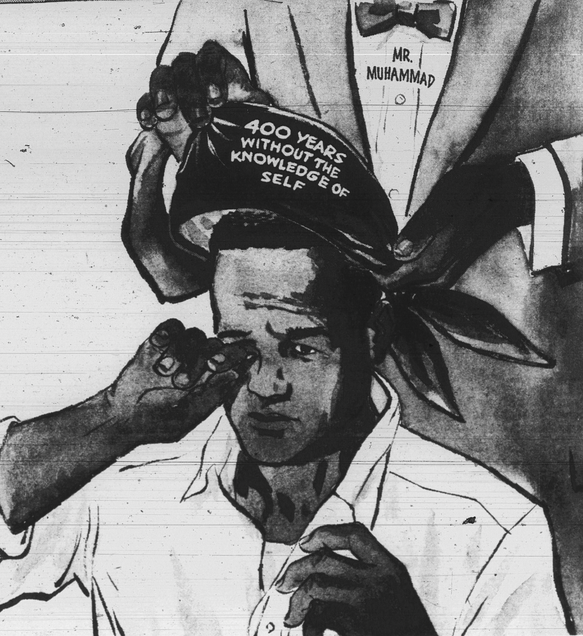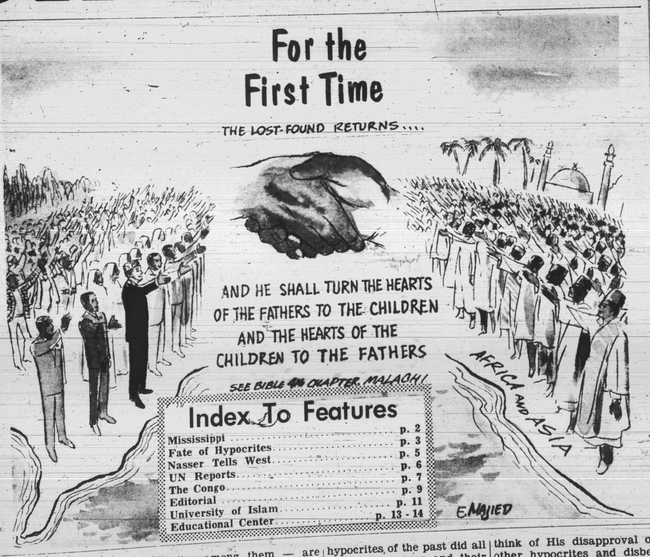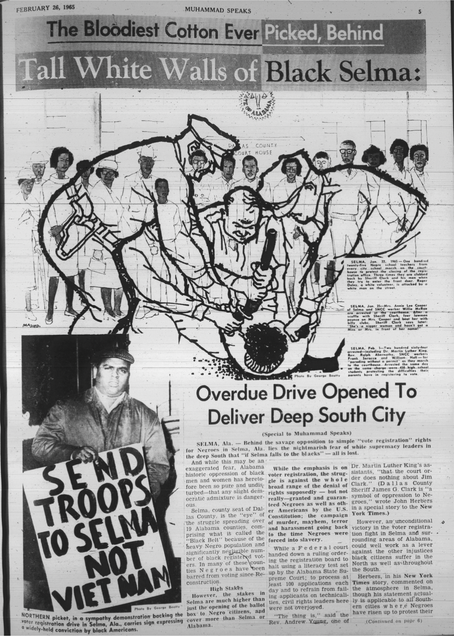Prof. Williams Explores Role of Political Cartoons in Black Religious & Cultural Movements


The relationship to different geographies – and migration between them – is an essential component of Black history and culture in the United States. In an article published in Southern Cultures, Darien Alexander Williams, assistant professor at BU School of Social Work (BUSSW), explores how Black Americans used newspaper networks and political art to reorient these geographies in the 1960s and ‘70s, using the influential Nation of Islam newspaper Muhammad Speaks as their vehicle.
Muhammad Speaks served as a platform for critical discourse: writers and illustrators covered topics from current events to critiques of Civil Rights Movement leaders, social and cultural norms, and theology. These contributors experienced the Great Migration north and west from the Post-Reconstruction South, enduring what Williams calls “some of the most concerted and refined white supremacist political violence in the history of the then-century-old settler colonial project of the United States.”

The artwork included in each issue reflected these experiences. Williams’ article showcases numerous political cartoons ranging in subject matter from unification and police brutality to deteriorating social conditions in cities, models of solidarity economies, and connections between state violence in the U.S. and the horrors of war abroad in places like Vietnam and apartheid South Africa. In spite of the ideological diversity of the newspaper, this art characterized and contextualized a common geography.

The narratives extended beyond the United States. Williams provides examples showing how Muhammad Speaks expressed allyship towards Africa and Asia, non-white geographies with shared anti-colonial principles and histories. According to Williams, “This work geographically reoriented readers away from inherited geographies and histories toward positions that produced numerous political projects for everyday Muslims living in the US and abroad,” transforming ideologies and ways of living.
Williams found that as the newspaper connected Black Americans with larger anticolonial liberation movements, both locally and globally, it also allowed Black readers to reorient their identities and histories – “to craft a national identity outside of and beyond the United States.”